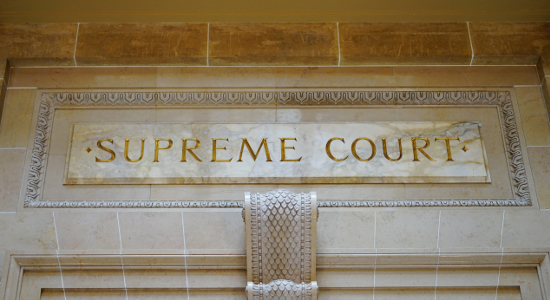
May 16, 2019 – The Wisconsin Supreme Court has rejected a probationer’s argument that circuit courts have inherent authority to reduce the length of a probation term despite a statute that allows modification only under certain circumstances.
Dennis Schwind argued the circuit court’s statutory ability to modify probation, under Wis. Stat. section 973.09(3)(d), does not limit the court’s inherent authority to do so.
But in State v. Schwind, 2019 WI 48 (May 3, 2019), a majority (4-2) concluded that inherent authority of courts “consists of only those powers that are necessary for the judiciary to accomplish its constitutionally mandated functions” and the circuit court “does not have inherent authority to reduce or terminate a period of probation.”
Schwind pled guilty to numerous child sexual assault charges that subjected him to a 100-year prison sentence. Under the plea agreement, though, the court stayed a 10-year prison term so that he served one year in jail with 25 years of probation.
In 2002, Schwind violated the terms of probation by having physical contact with the victim and unsupervised contact with other children. He also failed a sex offender treatment program. The court imposed an additional year of jail time.
In 2014, 13 years into his 25-year probation period, Schwind filed a motion for early termination of probation, which is allowed under section 973.09(3)(d).
Schwind did not meet the requirements for early termination, but he argued that the circuit court could use its inherent authority to order early termination of his probation.
At first, the circuit court judge did not rule on whether circuit courts could use inherent authority in this type of case. Instead, the court said a request for early probation would be denied, even if the court had inherent authority to reduce probation periods.
In a motion for reconsideration, the circuit court ruled that circuit courts don’t have inherent authority to reduce probationary periods, since the statute applies.
A state appeals court relied on a 2010 appeals court ruling, which the supreme court affirmed. That decision did not decide whether courts have inherent authority.
Even if it did have inherent authority, the appeals court said, it could be only used under the same factors that circuit courts use to reduce a sentence.
There would need to be a clear mistake, a new sentencing factor, or undue harshness or unconscionability. The appeals court said none of those factors were present in Schwind’s case, so the appeals court affirmed the circuit court’s ruling.
On appeal, the Wisconsin Supreme Court affirmed the appeals court, examining the boundaries of the circuit court’s inherent authority while cautioning that “issues regarding the scope of inherent authority carry separation of powers concerns.”
“Recognizing the need for caution in this area, we are careful to invoke inherent authority if, but only if, invocation is necessary ‘to maintain [the court’s] dignity, transact their business, [and] accomplish the purposes of their existence,’” wrote Chief Justice Patience Roggensack, noting Wisconsin courts generally exercise inherent authority in three areas: 1) “to guard against actions that would impair the powers or efficacy of the courts or judicial system”; 2) “to regulate the bench and bar;” and 3) “to ensure the efficient and effective functioning of the court, and to fairly administer justice.”
Unlike the court’s sentencing powers, which derive from the state constitution, the chief justice noted that probation is a statutory creation of the Wisconsin Legislature.
“[P]robation is a shared power not because it is a common-law judicial power that was incorporated into the Wisconsin Constitution, but only because the legislature chose to permit it,” Chief Justice Roggensack wrote. “[C]ourts have never the power to impose probation without statutory authorization.”
The majority said “reducing a term of probation does not fit within any of the three areas in which courts have traditionally exercised inherent authority.”
“[W]e conclude that courts do not have the inherent authority to reduce a term of probation,” Chief Justice Roggensack wrote.
Concurrence/Dissent
Justice Rebecca Dallet wrote a separate opinion, concurring in part and dissenting in part. Justice Ann Walsh Bradley joined Justice Dallet’s opinion.
Justice Dallet concluded that a circuit court “may reduce a term of probation as an exercise of its inherent authority to efficiently and effectively function and to administer justice fairly.” She said a statute “cannot limit the court’s inherent authority.”
“Because sentencing and probation serve different purposes, constraining a circuit court’s authority to reduce a term of probation in the same way that it modifies a sentence is an attempt to put a square peg in a round hole,” Justice Dallet wrote.
Although Dallet disagreed with the majority’s opinion on inherent authority, she agreed that it could not be used to reduce Schwind’s probation term in this case:
“The circuit court stated that even if it had the inherent authority to reduce Schwind’s term of probation, early termination of probation was not warranted in this case. In making this determination, the circuit court did not erroneously exercise its discretion.”
Justice Shirley Abrahamson did not participate in the case.
